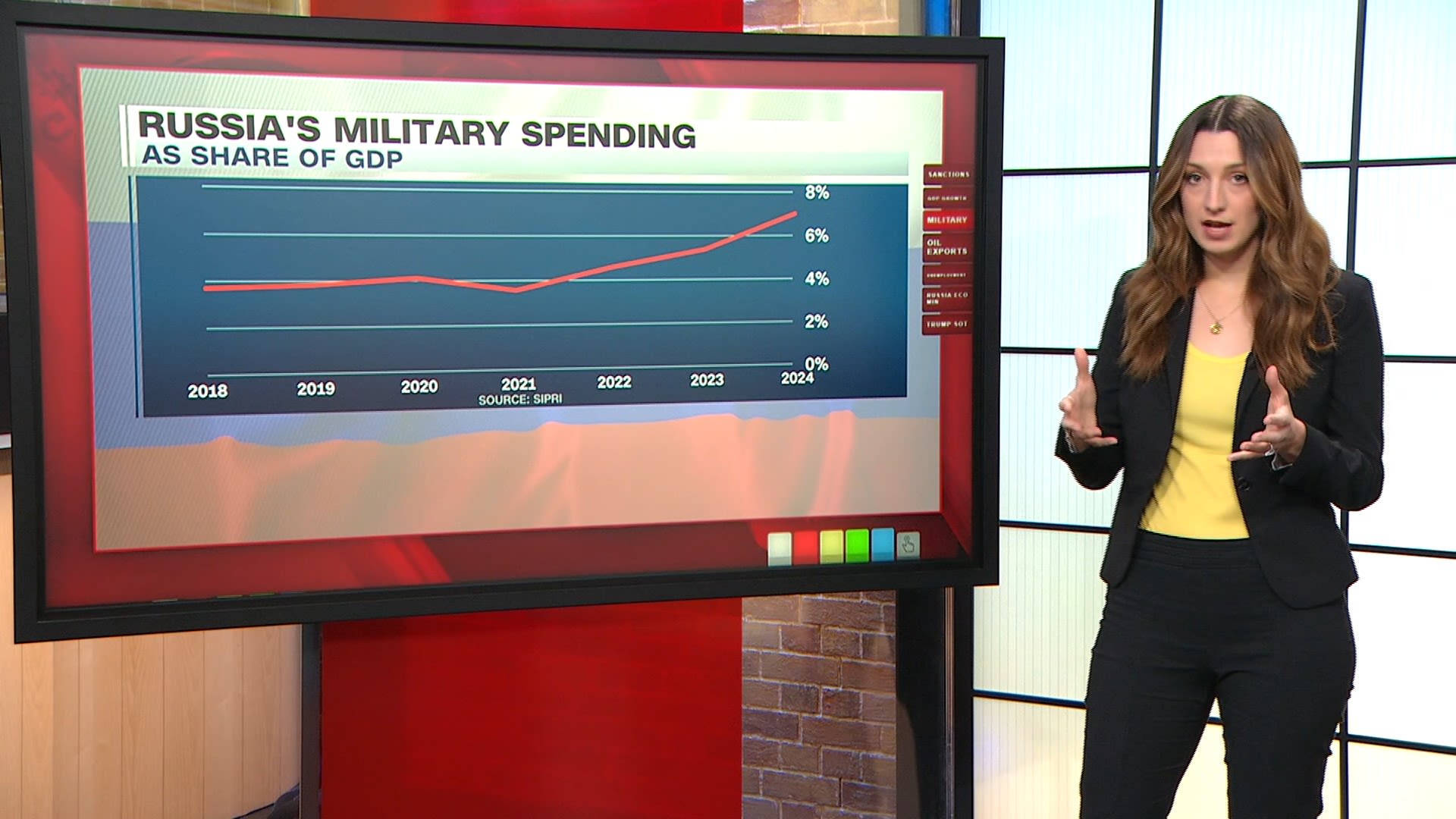Education
Trump and Putin Meet in Alaska: Business Talks Amid Sanctions

US President Donald Trump and Russian President Vladimir Putin are set to meet in Alaska for discussions that could potentially lead to a peace agreement regarding the ongoing conflict in Ukraine. The outcome of these talks may not only affect diplomatic relations but could also open the door for American businesses to resume operations in Russia, a prospect that seemed unlikely following the imposition of strict sanctions.
During a flight on Air Force One, Trump expressed optimism about the meeting, noting, “I noticed (Putin’s) bringing a lot of business people from Russia, and that’s good. I like that, because they want to do business, but they’re not doing business until we get the war solved.” This statement highlights the potential for a thaw in relations, contingent upon progress in negotiations.
Challenges Faced by American Companies
Since the onset of the conflict in February 2022, when Russia invaded Ukraine, Western companies have largely exited the Russian market. According to a list from the Yale School of Management, over 1,000 global firms have either ceased operations or significantly reduced their presence in Russia. Major American brands such as Apple, Goldman Sachs, and Mastercard have withdrawn, leaving a void that has been partially filled by companies from China and other nations.
The corporate exodus has diminished the number of American businesses capable of generating new opportunities in Russia. In the absence of Western companies, Russian consumers have turned to alternatives, with local businesses creating imitations of popular brands. For instance, Stars Coffee emerged following Starbucks’ exit, adopting a logo reminiscent of the well-known coffee chain.
The Energy Sector and Sanctions
Western sanctions have targeted Russia’s energy sector, a critical component of its economy. In 2022, revenues from oil and natural gas constituted approximately 30% of Russia’s federal budget, as reported by the Oxford Institute for Energy Studies. The European Union, once a primary purchaser of Russian energy, has banned seaborne imports of crude oil and reduced its reliance on Russian natural gas, which fell from more than 40% of imports in 2021 to around 11% last year.
Despite these sanctions, Russia has successfully redirected its oil exports to countries like India and China. Currently, Russia accounts for 36% of India’s crude oil imports, making it the country’s largest supplier. Trump has indicated that he may impose tariffs on nations continuing to purchase Russian oil to pressure Putin into negotiations. However, India maintains that Russian oil is vital for its energy security.
The Group of Seven (G7) nations implemented a price cap on Russian oil to limit Moscow’s revenue while keeping oil flowing to the global market. This cap prevents G7-based companies from providing essential services like shipping and insurance for Russian oil unless it is priced below a specified threshold. Removing this cap would require broad international cooperation.
Barriers to Reestablishing Business Relations
Returning to business in Russia presents significant challenges. Following the invasion, several Russian banks were banned from the SWIFT messaging system, complicating international financial transactions. Janis Kluge, a researcher at the German Institute for International and Security Affairs, pointed out that re-admitting these banks to SWIFT would necessitate EU cooperation.
Corruption levels in Russia have also worsened, with the country slipping from 136th place in Transparency International’s Corruption Perceptions Index in 2021 to 154th place by 2024. This decline raises additional concerns for American businesses contemplating re-entry into the Russian market.
As Trump and Putin engage in discussions in Alaska, the outcome could have profound implications for both diplomatic relations and the potential for American companies to explore opportunities in Russia once more. However, the significant barriers presented by sanctions, corporate exodus, and corruption may complicate any efforts to revive business ties.
-

 Science1 month ago
Science1 month agoNostradamus’ 2026 Predictions: Star Death and Dark Events Loom
-

 Technology2 months ago
Technology2 months agoOpenAI to Implement Age Verification for ChatGPT by December 2025
-

 Technology7 months ago
Technology7 months agoDiscover the Top 10 Calorie Counting Apps of 2025
-

 Health5 months ago
Health5 months agoBella Hadid Shares Health Update After Treatment for Lyme Disease
-

 Health5 months ago
Health5 months agoAnalysts Project Stronger Growth for Apple’s iPhone 17 Lineup
-

 Technology5 months ago
Technology5 months agoElectric Moto Influencer Surronster Arrested in Tijuana
-

 Education5 months ago
Education5 months agoHarvard Secures Court Victory Over Federal Funding Cuts
-

 Health5 months ago
Health5 months agoErin Bates Shares Recovery Update Following Sepsis Complications
-

 Technology7 months ago
Technology7 months agoMeta Initiates $60B AI Data Center Expansion, Starting in Ohio
-

 Technology6 months ago
Technology6 months agoDiscover How to Reverse Image Search Using ChatGPT Effortlessly
-

 Science4 months ago
Science4 months agoStarship V3 Set for 2026 Launch After Successful Final Test of Version 2
-

 Technology7 months ago
Technology7 months agoRecovering a Suspended TikTok Account: A Step-by-Step Guide





















